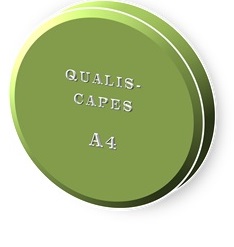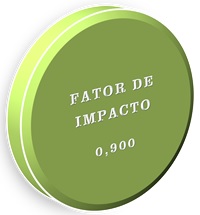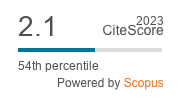DEVELOPMENT OF Sitophilus zeamais IN MAIZE GRAINS STORED UNDER LIGHTING SYSTEMS
Palavras-chave:
Wevill. Lamps. Storage. Zea mays. Stored products.Resumo
The aim of this study is to evaluate the Sitophilus zeamais development in maize seeds, under four lightning systems and to find a mathematical model that describes the growth of this insect under the ambient conditions. Four wood cabinets were built, one of them was a natural light and the other ones as it follow: mixed light, sodium steam light and anti-bugs incandescent light. Inside each chamber, there were 18 recipients containing approximately 250g of seeds infested with 25 weevils. After the chambers building, a timer system was built, so the lamps would stay turned on always on the same time, from 6:00 p.m. to 6:00 a.m. to next day, consequently kept on for 12 hours. Every 21 days after the construction of the experiment 3 recipients from each chamber were taken off and weevils there were counted using the Belese funnel, and the seeds moisture was measured. It was not observed any influence on the bug development, who presented the maximum level of growing 84 days after the storage at all lightning systems tested. The humidity level kept constant itself until the 84th day and it had reduced significantly, indicating environmental changes during the procedure. The growth of S. zeamais can be described by a polynomial model.Downloads
Downloads
Publicado
Edição
Seção
Licença
Os Autores que publicam na Revista Caatinga concordam com os seguintes termos:
a) Os Autores mantêm os direitos autorais e concedem à revista o direito de primeira publicação, com o trabalho simultaneamente licenciado sob a Licença Creative Commons do tipo atribuição CC-BY, para todo o conteúdo do periódico, exceto onde estiver identificado, que permite o compartilhamento do trabalho com reconhecimento da autoria e publicação inicial nesta revista, sem fins comerciais.
b) Os Autores têm autorização para distribuição não-exclusiva da versão do trabalho publicada nesta revista (ex.: publicar em repositório institucional ou como capítulo de livro), com reconhecimento de autoria e publicação inicial nesta revista.
c) Os Autores têm permissão e são estimulados a publicar e distribuir seu trabalho online (ex.: em repositórios institucionais ou na sua página pessoal) a qualquer ponto antes ou durante o processo editorial, já que isso pode gerar alterações produtivas, bem como aumentar o impacto e a citação do trabalho publicado (Veja O Efeito do Acesso Livre).







